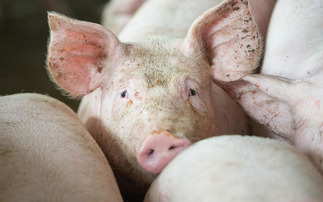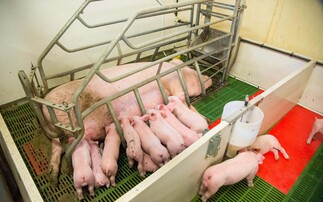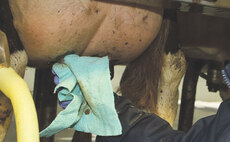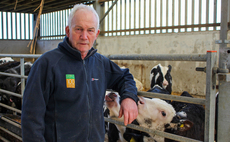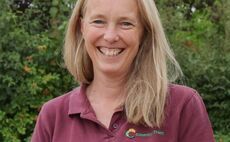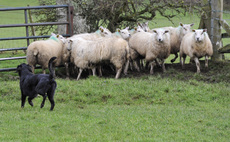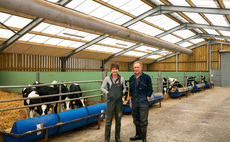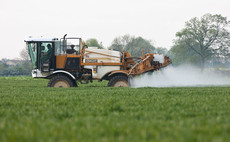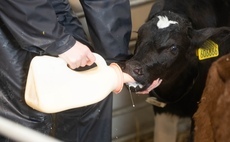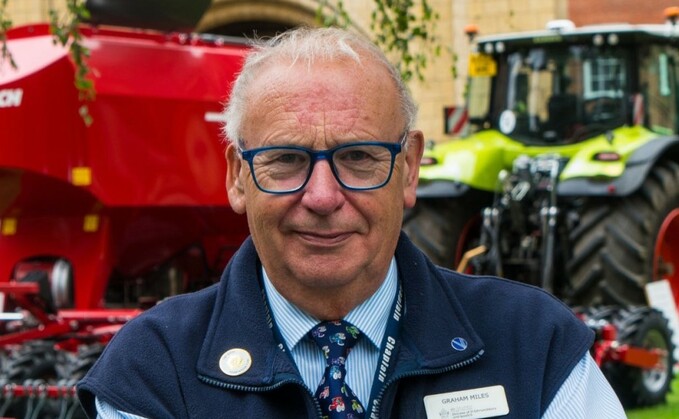
Graham Miles: "We need to be there for our farmers during this most difficult time."
Bluetongue restrictions have placed a toll on the mental health and well-being of farmers, according to those working in areas impacted by the disease.
Graham Miles, an agricultural chaplain for Suffolk, said the rising cases of the airborne virus in England has placed a heavy burden on farm businesses, with some farmers claiming they have lost 'thousands of pounds' due to not being able to take their livestock to market.
Since August 26, APHA has confirmed the virus has been detected on farms in Kent, Suffolk, Norfolk, Lincolnshire, Yorkshire and Essex.��
READ NOW: Bluetongue case identified at farm in North East Lincolnshire
And farmers in England have been contending with the disease since November, with more than 170 cases recorded in the space of 10 months.
Mr Miles, who has had farmers reach out to him about their concerns with cases rising, said the changing situation had caused a significant amount of worry.
"This awful disease is causing farmers nothing but stress and anxiety," he added.
"The rules are changing on a day-to-day basis, and farmers are really struggling to know where they stand.
"And the virus is now spreading from county to county.
"One farmer in Suffolk has told me they have lost around £20,000 since the new restrictions were implemented last month because they cannot take their sheep to market.
"There is a health and well-being aspect amongst all this.
"Farmers who speak to me say they are struggling to carry on.
"They are concerned about providing for their families and the increased costs they will incur if sheep cannot be moved without special authorisation.
"It moves me to tears hearing how challenging it is for our farmers at the minute."
Mr Miles, a former farmer who reared Suffolk sheep and suckler cows in Falkenham, reiterated the role of auction markets to farmers during a time of bluetongue restrictions and the impact of dwindling venues over the years.
"Our nearest markets in Suffolk are in Colchester and Norwich, which now have confirmed bluetongue cases, which means farmers have no markets unless they can obtain special authorisation to move livestock," he says.
"We used to have thriving markets in Suffolk which were nowhere near the length or distance to travel with livestock like farmers are expected to do these days.
"It just adds to the problems they are facing.
"Auction marts are so important for farmers too in meeting with friends and business associates, as well as an opportunity to get a much needed break away from the farm.��
"The long hours do not get easier for farmers, and all that effort put in and now not being able to sell stock is such a huge blow.
"They will have to navigate through rising production costs to keep animals on farm alongside the physical graft to ensure they are fit and healthy.
"Their livelihood really is under threat.
"It is a matter of survival to combat this dreadful disease and we still do not know how long it will take for restrictions to be removed.
"Or if the situation will get worse or change.
"Mental health is such a big problem for farmers at the moment and bluetongue is only making things worse."
And the Suffolk rural chaplain has spoken of the urgency of picking up the phone to a farmer working in a restricted zone at the moment.
"Despite the challenges, I want farmers to know that they can contact me 24 hours a day," he added.
"We need to be there for our farmers during this most difficult of times.
"Remember, farmers are doing such a fantastic job to put food on our tables.
"They are working throughout all weather conditions and have to contend with so many hurdles.����
"The very least they deserve is a helping hand, a friendly smile or just a friendly phone call.
"The more we can just pick up the phone and ask a farmer how they are doing, the greater it will be in ensuring that a farmer feels cared and valued during this difficult time.
"Because it seems like things are only going to get worse before they get better with bluetongue."
You can find Graham's contact details .






